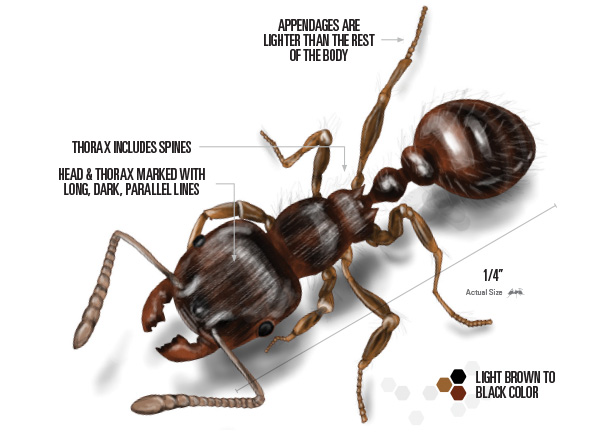Black Carpenter Ants:
most common ant, they are distinguished by large size and smooth rounded thorax. They live in hollow trees, logs, firewood, and wood exposed to water. When a carpenter ant feels that their nest is in danger they will naturally attack any predator. They do not sting , rather they will bite. If a bite does happen they often will spray a formic acid into the wound that will increase the pain. The bite will resemble a small welt, minor swelling and inchiness
Red pavement ants:
The kings of the sidewalks, driveways and all types of pavement. These ants may also be located on kitchen counters or on picnic table in search of sugary crumbs. While their name indicates red color they may be red brown to a blackish brown color. They are rather small normally no bigger than 4-5 mm long. These ants sting with a non-poisonous venom. The venom does cause an allergic reactions or rash for people with sensitive skin.
Fire Ants:
Often known as Red Fire Ants are often light brown in color but there are fire ants that are black. The red fire ant bite is more painful but both the black and red are no more than 1/8 inch long. This type of ant is most commonly found in southern area of the United States. Fire ants are very protective of their territory and will fight aggressively if they feel a threat. Multiple bites with venom injected causes severe pain that leads to swelling and pus filled blisters and infection.
Most ant bites are minor in nature and often require a doctors visit. Ants with venomous stings can cause allergic reactions. Nausea, severe swelling, difficulty breathing may result and require immediate medical help. To clean and treat ant bites or stings at home start by:
- washing the wound with soap and water
- dab on rubbing alcohol to prevent infection
- ice should be applied to sting to aid with pain and swelling
- cortisone cream will help eliminate itchiness and redness


No comments:
Post a Comment
I love comments so if you have a minute leave me your thoughts on the above post